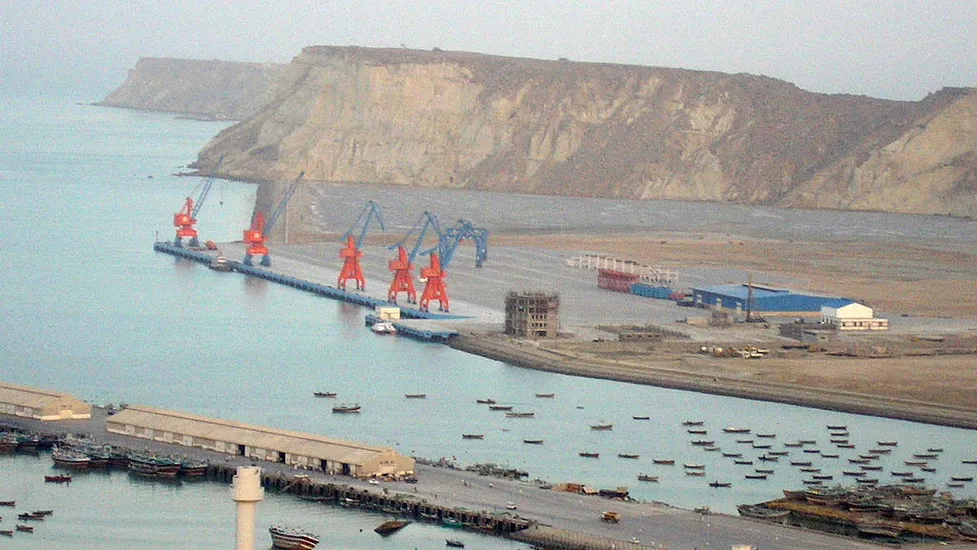Gwadar was once sold as the future dream of prosperity to Pakistan’s public – with Chinese sponsored path of China Pakistan Economic Corridor (CPEC) as the road to heaven. However, the dream has shattered, even before the dawn – with Gwadar itself the symbol of hopelessness Pakistani populace faces today. This frustration finally spilled over on road, with massive protests being organized by all actors of the society including activists, students, fishermen and even some political parties.
Gwadar: the shattered dream
Gwadar was touted as the jewel of the CPEC crown, harbinger to the proposed huge infrastructure plans – with potential to change the destiny of once impoverished province of Baluchistan. However, all elite governing institutions have simply colluded with their Chinese payers to enrich themselves at the cost of public welfare.
While Beijing made few investments in the region – it is evident that these Chinese projects have become an end to themselves – with no ‘trickle-down’ for the local populace. The real intent of Chinese companies has been ‘mercantile colonialism’ – extracting the local resources to fulfill their coffers. Not only has the labour working on these projects been Chinese, leading to nil job opportunities for the locals, but the ever-increasing influx of Chinese trawlers has also only led to loss of massive catchment areas for the local fishermen. But that’s not all….the massive land grab in the name of development has now also forced natives into displacement to areas with nearly non-existent living conditions.
Economic Instability & The Fault Lines Within
A look into the recent Gwadar protests makes it clear that the only way China was able to progress ahead with this ‘neo-colonialism’ was due to backend support from the most powerful institution in Pakistan – the Pakistan Army. The CPEC Authority is headed by a retired Lieutenant General, who acts as the middleman for his Chinese masters. As huge Chinese loans have piled up – the ‘debt- trap’ diplomacy has led the Islamabad surrendering their authority and financial autonomy to its masters in Beijing.
In fact, with the deepening economic instability, various factions of Pakistan’s armed forces have also joined the Chinese in extorting the common civilian population of Pakistan. Take for example the Defense Housing Authority – DHA was described as the ‘biggest land grabber’ by Lahore High Court and was accused by courts of having joined the Chinese companies in usurping the prime land and developing secured conclaves for the Army Officers. This brings us to an interesting question, when organizations that were established to provide security to common man like the Pakistani Army don’t hesitate to shoot down the dreams/aspirations/livelihoods of their own people, can other nations be blamed?
“Small acts, when multiplied by millions of people, can quietly become a power no government can suppress, a power that can transform the world”
This time the protests organized by local fishermen, civil rights activists and students were joined by political parties like Jamaat-i-Islami. With chants of Gwadar Ko Huqooq Do (Give Rights to Gwadar), reverberating throughout the coast of Arabian Sea the local Jamaat-i-Islami leader Maulana Hidayatur Rehman, led the protests and echoed peoples’ sentiments.
“We are demanding the rights of Gwadar, which were usurped by the rulers and the people were even deprived of basic needs. The fishermen were not able to earn their livelihood as big trawlers were allowed fishing at Makran Coast”
– Maulana Hidayatur Rehman
Although it took 32 days but the protests have finally come to an end. However, the real test for Imran Khan and his government has just begun – Are the genuine demands of Gwadar enough to take a stand against the Chinese? Can Pakistan’s civilian government muster courage to control the unholy nexus between the Pakistani armed forces and the Chinese forces? Can the government, which is often condemned by their own people as being ‘puppets’ finally rise to the occasion and ensure the basic rights to the citizens, or will the burden of debt and the might of the army yet again force them to look the other way?
None of these questions will be easy for Imran Khan to answer, but how his government conducts business now is exactly how history (and mostly Pakistan) shall remember him!

